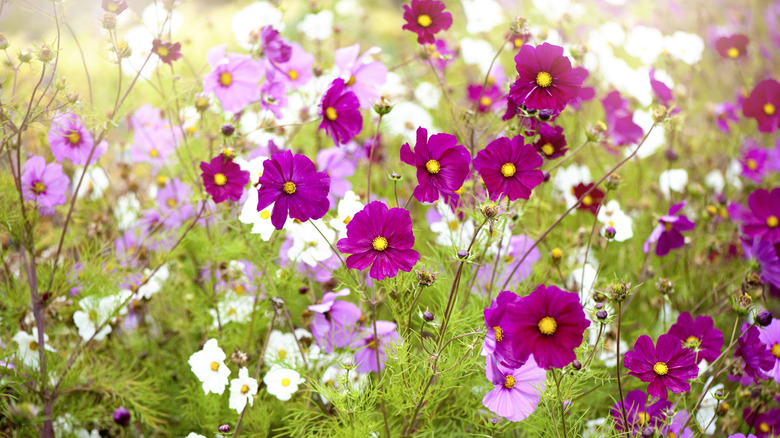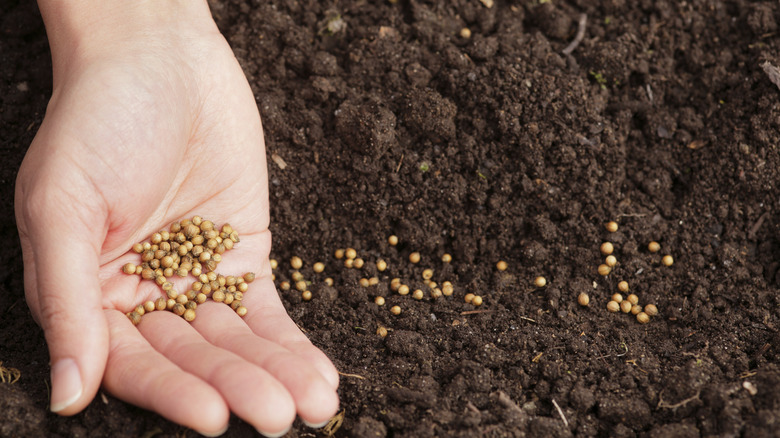Cosmos Flower Seeds Are Quick And Easy To Grow For Beginner Gardeners
Growing plants from seed can be intimidating, and nothing feels longer than the wait for the first sign of life to pop through the soil. However, growing a garden full of cosmos flowers takes away all the anxiety and guesswork. In just one week, you can have sprouting cosmos plants that eventually lead to a beautiful summer garden. It is a flower that beginner gardeners can easily grow from seed and only needs sunlight and the occasional water to flourish.
Cosmos is a low-maintenance plant. It doesn't need fertilizer or compost. In fact, excess nutrients or water can inhibit bud development and lead to weak stems or lackluster blooms. Although cosmos is an annual plant, it can also self-seed, taking the task of planting more flowers next growing season off of your hands. This easy-to-grow plant can be grown throughout the U.S., and it is perfect as a floral border or for pops of color in your yard. Cosmos also has a lot of nectar and pollen that attract bees, butterflies, and other pollinators. You can even plant various varieties that differ in color, shape, and height to bring biodiversity to your garden.
How to grow cosmos flowers from seed
Planting cosmos seeds is super easy. The best time to do so is after the last frost and once the soil is roughly 65 degrees Fahrenheit. However, soil temperatures between 70 and 75 degrees are ideal for the seeds to germinate. When the right conditions are met, simply sprinkle the seeds and rake them into the soil. They should only be ⅛ inch deep into the ground, as any deeper can impede germination.
Once the seeds are in, grab the garden hose. You want to keep the soil moist after sowing the seeds, but reduce to weekly waterings once the plants start to sprout. It takes around seven to 21 days for the cosmos to break ground, so in less than a month you should see growth. Further, the weekly watering is all you really need to care for cosmos flowers. Even if you miss a watering or two, that is okay. The annuals are drought-tolerant and prefer dry soil. Once the plants get at least six hours of sunlight and enough water, the bright blooms should blossom early summer and flourish all season long.

